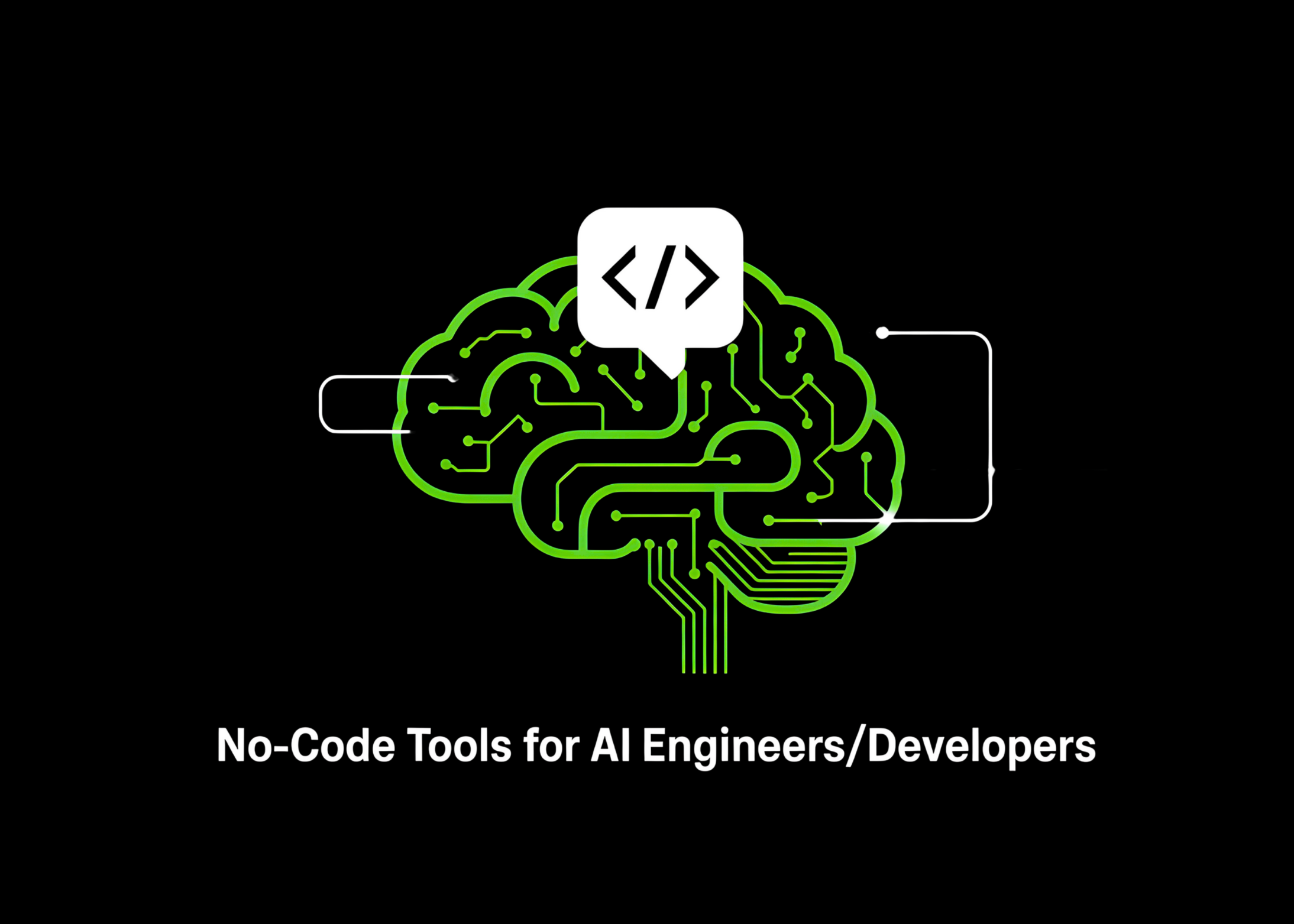In today’s AI-driven world, no-code tools are transforming how people create and deploy intelligent applications. They empower anyone—regardless of coding expertise—to build solutions quickly and efficiently. From developing enterprise-grade RAG systems to designing multi-agent workflows or fine-tuning hundreds of LLMs, these platforms dramatically reduce development time and effort. In this article, we’ll explore five powerful no-code tools that make building AI solutions faster and more accessible than ever.
Sim AI
Sim AI is an open-source platform for visually building and deploying AI agent workflows—no coding required. Using its drag-and-drop canvas, you can connect AI models, APIs, databases, and business tools to create:
- AI Assistants & Chatbots: Agents that search the web, access calendars, send emails, and interact with business apps.
- Business Process Automation: Streamline tasks such as data entry, report creation, customer support, and content generation.
- Data Processing & Analysis: Extract insights, analyze datasets, create reports, and sync data across systems.
- API Integration Workflows: Orchestrate complex logic, unify services, and manage event-driven automation.
Key features:
- Visual canvas with “smart blocks” (AI, API, logic, output).
- Multiple triggers (chat, REST API, webhooks, schedulers, Slack/GitHub events).
- Real-time team collaboration with permissions control.
- 80+ built-in integrations (AI models, communication tools, productivity apps, dev platforms, search services, and databases).
- MCP support for custom integrations.
Deployment options:
- Cloud-hosted (managed infrastructure with scaling & monitoring).
- Self-hosted (via Docker, with local model support for data privacy).
RAGFlow
RAGFlow is a powerful retrieval-augmented generation (RAG) engine that helps you build grounded, citation-rich AI assistants on top of your own datasets. It runs on x86 CPUs or NVIDIA GPUs (with optional ARM builds) and provides full or slim Docker images for quick deployment. After spinning up a local server, you can connect an LLM—via API or local runtimes like Ollama—to handle chat, embedding, or image-to-text tasks. RAGFlow supports most popular language models and allows you to set defaults or customize models for each assistant.
Key capabilities include:
- Knowledge base management: Upload and parse files (PDF, Word, CSV, images, slides, and more) into datasets, select an embedding model, and organize content for efficient retrieval.
- Chunk editing & optimization: Inspect parsed chunks, add keywords, or manually adjust content to improve search accuracy.
- AI chat assistants: Create chats linked to one or multiple knowledge bases, configure fallback responses, and fine-tune prompts or model settings.
- Explainability & testing: Use built-in tools to validate retrieval quality, monitor performance, and view real-time citations.
- Integration & extensibility: Leverage HTTP and Python APIs for app integration, with an optional sandbox for safe code execution inside chats.
Transformer Lab
Transformer Lab is a free, open-source workspace for Large Language Models (LLMs) and Diffusion models, designed to run on your local machine—whether that’s a GPU, TPU, or Apple M-series Mac—or in the cloud. It enables you to download, chat with, and evaluate LLMs, generate images using Diffusion models, and compute embeddings, all from one flexible environment.
Key capabilities include:
- Model management: Download and interact with LLMs, or generate images using state-of-the-art Diffusion models.
- Data preparation & training: Create datasets, fine-tune, or train models, including support for RLHF and preference tuning.
- Retrieval-augmented generation (RAG): Use your own documents to power intelligent, grounded conversations.
- Embeddings & evaluation: Calculate embeddings and assess model performance across different inference engines.
- Extensibility & community: Build plugins, contribute to the core application, and collaborate via the active Discord community.
Llama Factory
LLaMA-Factory is a powerful no-code platform for training and fine-tuning open-source Large Language Models (LLMs) and Vision-Language Models (VLMs). It supports over 100 models, multimodal fine-tuning, advanced optimization algorithms, and scalable resource configurations. Designed for researchers and practitioners, it offers extensive tools for pre-training, supervised fine-tuning, reward modeling, and reinforcement learning methods like PPO and DPO—along with easy experiment tracking and faster inference.
Key highlights include:
- Broad model support: Works with LLaMA, Mistral, Qwen, DeepSeek, Gemma, ChatGLM, Phi, Yi, Mixtral-MoE, and many more.
- Training methods: Supports continuous pre-training, multimodal SFT, reward modeling, PPO, DPO, KTO, ORPO, and more.
- Scalable tuning options: Full-tuning, freeze-tuning, LoRA, QLoRA (2–8 bit), OFT, DoRA, and other resource-efficient techniques.
- Advanced algorithms & optimizations: Includes GaLore, BAdam, APOLLO, Muon, FlashAttention-2, RoPE scaling, NEFTune, rsLoRA, and others.
- Tasks & modalities: Handles dialogue, tool use, image/video/audio understanding, visual grounding, and more.
- Monitoring & inference: Integrates with LlamaBoard, TensorBoard, Wandb, MLflow, and SwanLab, plus offers fast inference via OpenAI-style APIs, Gradio UI, or CLI with vLLM/SGLang workers.
- Flexible infrastructure: Compatible with PyTorch, Hugging Face Transformers, Deepspeed, BitsAndBytes, and supports both CPU/GPU setups with memory-efficient quantization.
AutoAgent
AutoAgent is a fully automated, self-developing framework that lets you create and deploy LLM-powered agents using natural language alone. Designed to simplify complex workflows, it enables you to build, customize, and run intelligent tools and assistants without writing a single line of code.
Key features include:
- High performance: Achieves top-tier results on the GAIA benchmark, rivaling advanced deep research agents.
- Effortless agent & workflow creation: Build tools, agents, and workflows through simple natural language prompts—no coding required.
- Agentic-RAG with native vector database: Comes with a self-managing vector database, offering superior retrieval compared to traditional solutions like LangChain.
- Broad LLM compatibility: Integrates seamlessly with leading models such as OpenAI, Anthropic, DeepSeek, vLLM, Grok, Hugging Face, and more.
- Flexible interaction modes: Supports both function-calling and ReAct-style reasoning for versatile use cases.
Lightweight & extensible: A dynamic personal AI assistant that’s easy to customize and extend while remaining resource-efficient.
The post Top 5 No-Code Tools for AI Engineers/Developers appeared first on MarkTechPost.




